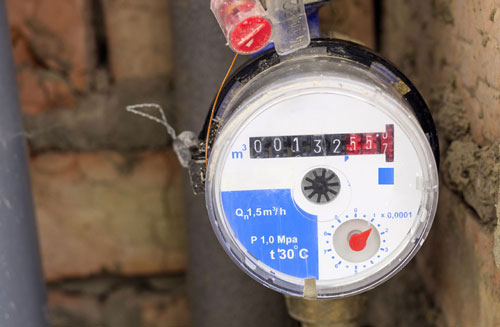Low water pressure in your home can be frustrating. If your home has hard water, it could be slowly restricting flow until you’ve got significant complications. Typically, you’ll first notice water pressure issues in the shower as this is where we enjoy and need the pressure to wash away the soap and shampoo. However, water pressure problems can also impact other areas of your home. Your washing machine can take longer to fill up, the dishwasher will take longer to run through cycles, and your faucets will slow down to just a dribble. When you notice your water pressure is lacking, the first step is to identify the underlying cause.
Let’s look at some of the most common reasons why homeowners experience low water pressure and some advice on what you can do to increase the flow of water in your home.
Valve Issues
City residences that are connected to a municipal water supply will have two essential valves: one at street level found outside your home at the water meter, and the other is the main water shut-off valve. If either of these valves partially closes, you may notice a difference in water pressure.
The city where you live should operate the water meter valve. If there was utility work or done on your home recently, and your entire home experienced a sudden drop in water pressure, that may be the cause. You should also check the main shut-off valve.

Pressure Regulator
Some homes have a different type of valve known as a pressure regulator. A pressure regulator reduces water pressure coming into your home in order to make your water come our safely and comfortably. Water pressure that is too high can create plumbing issues and cause unnecessary stress on appliances such as and dishwashers and washing machines. A regulator also protects pipes and appliances, as well as extends the life of your fixtures.
When a pressure regulator fails, it could cause a sudden increase or decrease in your water pressure. A common reason for failure is sediment buildup in the valve, which can cause blockages, pump problems, and short cycling.
Faucets and Fixtures
If you’re experiencing low water pressure in a specific faucet or plumbing fixture, check for clogging or corrosion that could be slowing the water flow. In this case, you can replace faucet aerators, clean showerheads to remove limescale, or buy new fixtures to replace the defective ones. It should be noted that repairing or replacing faucets and fixtures is only a temporary solution. The problem comes back over time.
Clogged Pipes
Fixtures aren’t the only things that clog up because of the mineral deposit buildup from hard water. Your pipes can become clogged as well and are one of the most frequent reasons from decreased water pressure. The pipes in your home are similar to the arteries in your body. Just like cholesterol can clog your arteries, limescale can clog your pipes and cause blockages, thus leading to low water pressure.
Corroded Plumbing
Another cause for low water pressure could be corroded plumbing. Not only can your pipes become clogged with limescale, but they also become restricted by corrosion. Acidic water with a low pH often causes corrosion, but water that is too alkaline may also corrode copper pipes. High levels of dissolved oxygen in water, sulfate and iron bacteria, high total dissolved solids (TDS), and sediment in the water that wears on piping can also produce corrosion.
Water Heaters
If you notice reduced pressure when using hot water, it could be that your water heater is struggling to produce enough water for your home’s usage requirements. Once again, there’s a perfect chance hard water is contributing to your troubles. A buildup in pipes may be blocking flow into and out of the water heater, which results in less-than-desirable pressure.
Well Water Pressure
Homeowners in rural areas who get their water from a private well may have different reasons for low water pressure. One common reason is sediment clogs the screen covering the well. In this case, your well pump will need to be removed and flushed, and the screen, as well as any other components, will need to be replaced and/or cleaned by a professional. If there is a change in water levels, this could also affect your water pressure.
Prevent Problems with a Water Softener
If your home has hard water, the best way to protect your investment is to have a high-quality water softener installed. Trust the water experts at Atlantic Blue Water Services to identify the right water treatment for your family by calling 410-840-2583.
